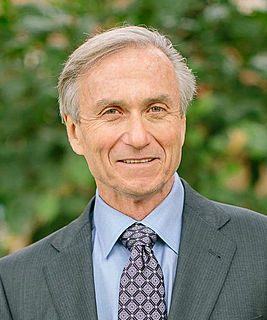A Quote by Joel Fuhrman
A significant number of research studies have documented that heart disease is easily and almost completely preventable through a diet rich in plant produce and lower in processed foods and animal products.
Related Quotes
We believe in the Three Rs - reducing the consumption of meat and other animal-based foods; refining the diet by eating products only from methods of production, transport, and slaughter that minimize pain and distress; and replacing meat and other animal-based foods in the diet with plant-based foods.
The ideal human diet looks like this: Consume plant-based foods in forms as close to their natural state as possible (“whole” foods). Eat a variety of vegetables, fruits, raw nuts and seeds, beans and legumes, and whole grains. Avoid heavily processed foods and animal products. Stay away from added salt, oil, and sugar. Aim to get 80 percent of your calories from carbohydrates, 10 percent from fat, and 10 percent from protein.
When I heard that heart disease kills more women than all cancers combined - when I heard that, I knew. The other thing that's very important is that heart disease...is preventable. There are some specific lifestyle changes that women can make: losing weight, not smoking, exercising, eating healthy foods. Knowing the risk factors: high blood pressure, high cholesterol, diabetes, [being] overweight. And if you have heart disease in your family, you should see your doctor. Because this disease is preventable.
The astounding variety of foods on offer in the modern supermarket obscures the fact that the actual number of species in the modern diet is shrinking. For reasons of economics, the food industry prefers to tease its myriad processed offerings from a tiny group of plant species, corn and soybeans chief among them.
When I was 88 years old, I gave up meat entirely and switched to a plant foods diet following a slight stroke. During the following months, I not only lost 50 pounds, but gained strength in my legs and picked up stamina. Now, at age 93, I'm on the same plant-based diet, and I still don't eat any meat or dairy products. I either swim, walk, or paddle a canoe daily and I feel the best I've felt since my heart problems began.
Studies indicate that vegetarians often have lower morbidity and mortality rates. . . . Not only is mortality from coronary artery disease lower in vegetarians than in non-vegetarians, but vegetarian diets have also been successful in arresting coronary artery disease. Scientific data suggest positive relationships between a vegetarian diet and reduced risk for obesity, coronary artery disease, hypertension, diabetes mellitus, and some types of cancer.































